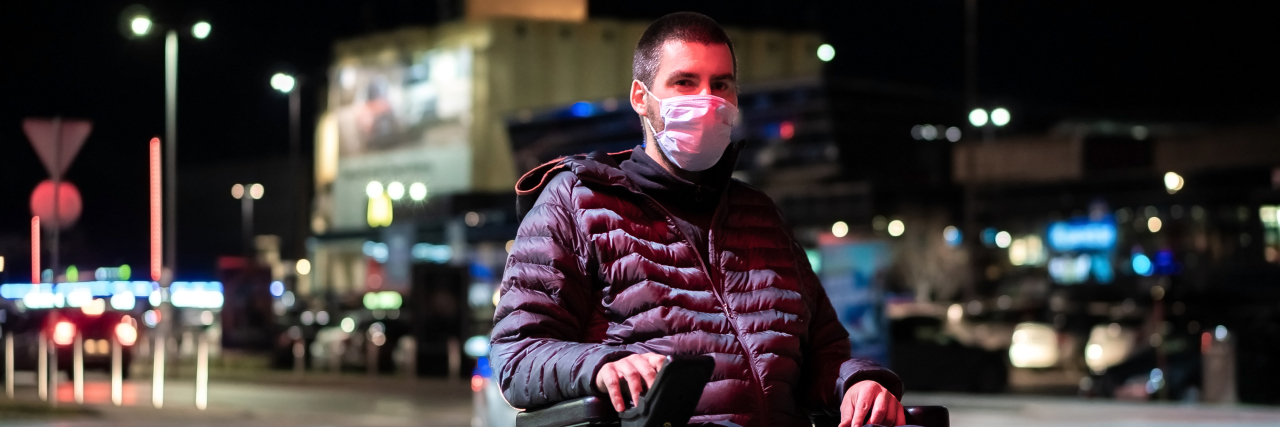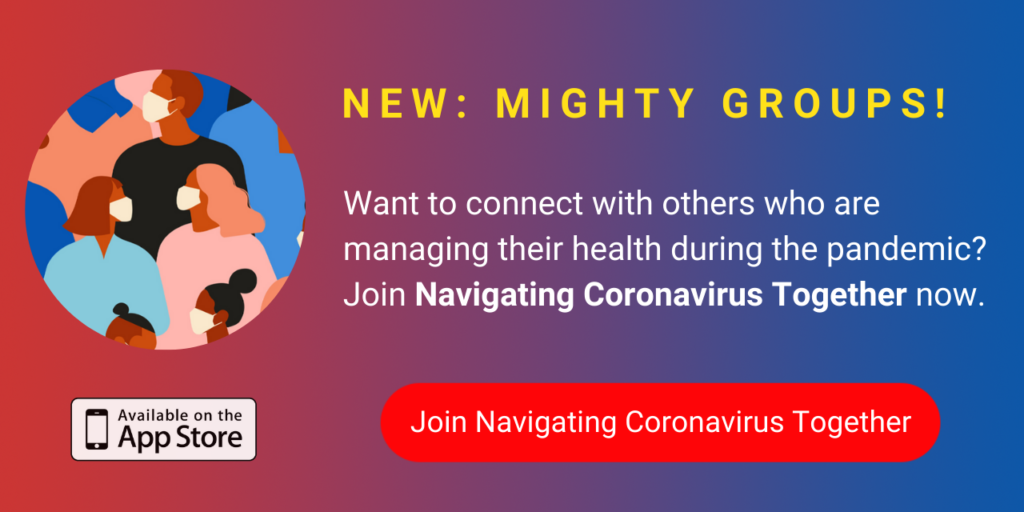As COVID-19 swept the globe, fears over vital health care resources like ventilators and masks posed the question of who gets prioritized in the U.S. Many hospitals initially drafted military-like triage plans for ventilator use. While most practitioners have walked back these harmful policies, COVID-19 has unearthed other issues of concern to the disability community.
From health care resource rationing to accommodations in the workplace, Jay Ruderman, president of the Ruderman Family Foundation, believes disability advocacy can be more impactful than ever right now. The Mighty spoke with Ruderman to get a better understanding about how COVID-19 has impacted the disability community, and what advocates can do now.
1. Health Care Provider Policies
One of the concerns early on in the COVID-19 pandemic was how hospitals would prioritize patients if they become overwhelmed with virus cases. Early drafts of those guidelines deprioritized the lives of people with disabilities, and led to an outcry from advocates. This included a white paper from the Ruderman Foundation calling for fair allocation of resources during the pandemic.
“Should people with disabilities come into the hospital with COVID-19 we don’t want them to be discriminated against and dismissed because of their disability,” Ruderman told The Mighty. “We also don’t want to discount someone with a disability and say their life is not worth as much as an able-bodied person.”
In late March, in part thanks to disability advocates, the U.S. Department of Health and Human Services’ Office for Civil Rights issued a bulletin reminding health care practitioners discrimination on the basis of disability or age was illegal.
Great video from @RudermanFdn initiative Link20 that asks the question that some people with #disabilities may be facing during the #COVID19 #pandemic: "Are we as disabled and or chronically ill individuals being treated in an #equal manner?" pic.twitter.com/u43VCeYxPK
— Jay Ruderman (@JayRuderman) May 1, 2020
2. Lack of Resources at Group Homes
Hearing news about COVID-19 spreading like wildfire through group homes and the lack of protective equipment for caregivers highlighted another inequity within the disability community.
According to a recent NPR analysis of state data, people with disabilities were four times as likely to get COVID-19 and twice as likely to die from the coronavirus. While experts believe some of the high risk for people with disabilities may be related to pre-existing conditions, those living in group homes were especially vulnerable.
Approximately 20% of people with developmental disabilities live in group settings. Direct support workers and caregivers in those facilities, unlike in other direct care or health settings, are not viewed as frontline workers. These support professionals are often paid at or below the poverty level, highlighting that working with disabled people is seen as less valuable.
3. Disability Accommodations
Because of COVID-19, many companies are allowing their employees to work from home. These basic accommodations were previously “too difficult” to implement when people with disabilities asked for them before COVID-19. Now, accommodations that make work more accessible have become normalized for many workers around the globe.
A move toward more flexible working options has also been seen in education as well. Colleges have moved to remote learning environments and students have more flexibility in completing their work. Strict class attendance policies are more lax and in-person requirements are substituted for alternative solutions.
“People like myself, CEOs, who’ve been working from home realize as long as you get your work done and you’re productive, it doesn’t really matter where you are,” Ruderman said. By being forced to consider alternative options to stay open during COVID-19, employers and schools may be more willing to accommodate people with disabilities even after the pandemic ends.
4. Black Disabled Lives Matter
In light of the murder of George Floyd by a police officer in Minneapolis, renewed Black Lives Matter protests have erupted around the country. At first glance, this may seem a separate issue from the COVID-19 pandemic. However, racism underlies the health and safety of Black people in America at all levels of society. Black people are approximately three times as likely to die from COVID-19.
“The basis of the health disparities that we have been navigating in the public health and emergency management space for decades is racism,” Nicolette Louissaint, Ph.D., executive director and president of Healthcare Ready, told The Mighty. “It’s not enough to just say we have to wait until the pandemic is done.”
Protests can’t wait, and we can’t forget Black disabled lives when we talk about the impact of racism.
Police can’t see I’m Deafblind. Frankly, many wouldn’t care. 30 to 50% of the lives extinguished by police were disabled black & brown people. If you believe #BlackDisabledLivesMatter, add your name to create a bold new solution #DefundThePolice https://t.co/DaLndsC0Ed pic.twitter.com/zJaw6pzA9t
— Haben Girma (@HabenGirma) June 7, 2020
Why Disability Advocacy Matters
As COVID-19 shines a light on long-standing issues for people with disabilities, advocacy is as important as ever: advocacy to improve health care equity, provide better resources for direct care workers, increase access to disability accommodations and dismantle systemic racism.
Disability advocacy has always been crucial to moving the needle — especially, Ruderman said, when the community works together to combat the “inherent unfairness” of the society we currently live in.
“A more equitable society is a safer society for all of us,” Ruderman explained. “The disability community could be the most powerful political force in the country.”
“Never doubt that a small group of thoughtful, committed citizens can change the world; indeed, it's the only thing that ever has.” Margaret Mead
— Jay Ruderman (@JayRuderman) June 8, 2020
For a few great places to lend your voice for disability advocacy, check out these organizations:
Header image via grejak/Getty Images


